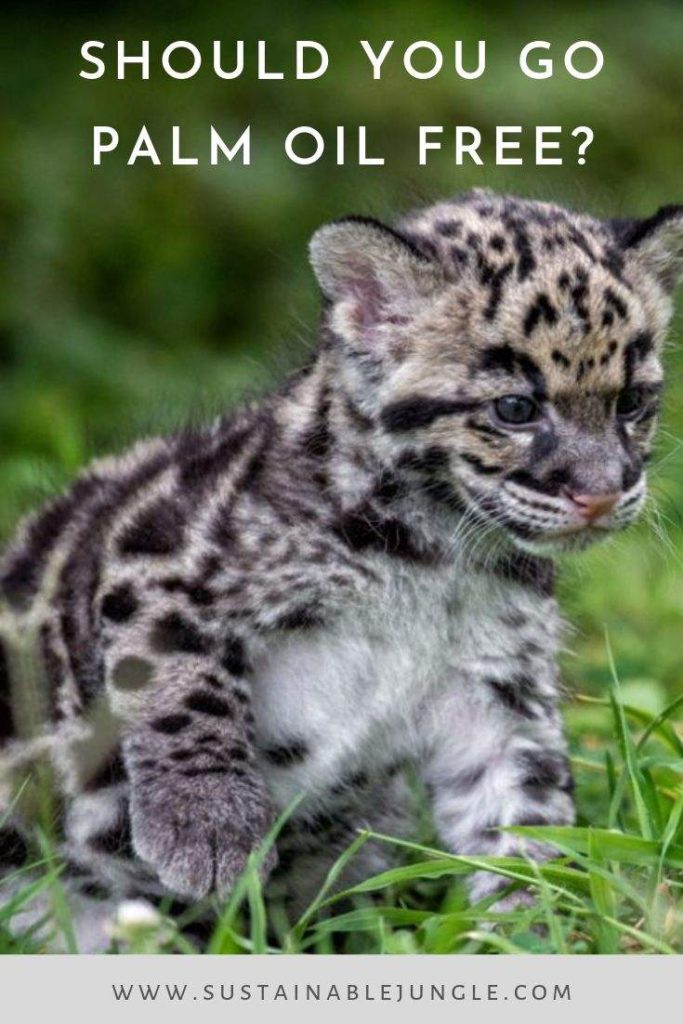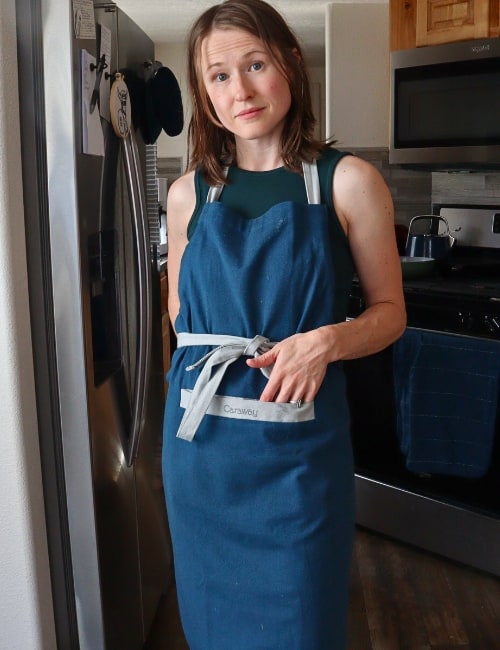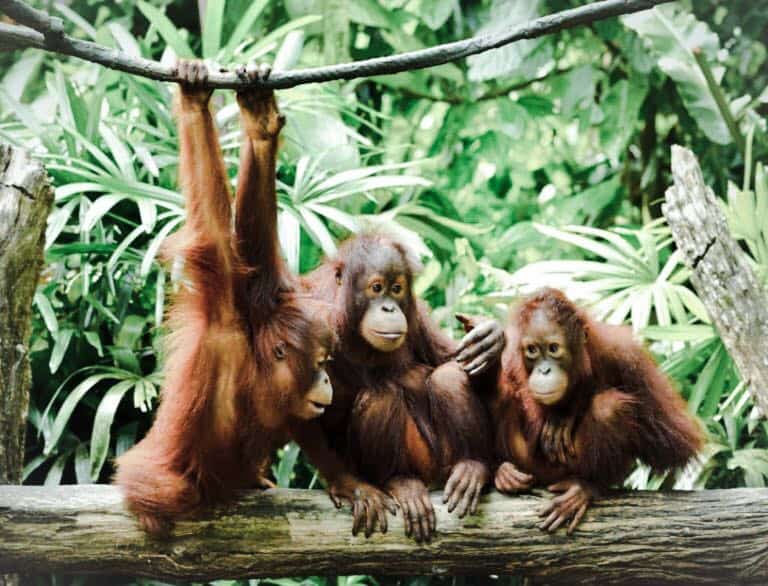
Should You Buy Palm Oil Free Products? Absolutely, And Here’s Why…
Depending on where you are in the world, “palm oil free” either has a lot of press or much less so.
For example, in Australia, it’s a fairly well publicized topic whereas in the USA it gets far less airtime, relatively speaking.
This may well be driven by proximity to major problem areas e.g. Australia is close to Indonesia where the palm oil industry is flourishing and devastating the natural environment.
For those who have been following along, the concept of “palm oil free” flared up a few years ago and then seemed to die off.
While we made the switch to ‘easy-to-find’ palm oil free products years ago (e.g. peanut butter and most of our personal care products), we haven’t done enough to keep up to date with the palm oil saga and the gravity of the situation – until now.
Thankfully, working on this blog has reminded us of how important it is to be aware of the sustainability issues that matter.
WHAT IS PALM OIL?
Simply put, it’s the most popular vegetable oil produced and consumed in the world.
It accounts for around 34% of the Global vegetable oil volume with soybean trailing behind at 29%. It’s used in just about every product that we consume from shampoo to lipstick to peanut butter and everything in-between.
It’s also a huge component in the production of biofuel, with the European Union importing almost half the entire stock for that purpose.
WHY IS PALM OIL SO POPULAR?
Because it’s the most efficient oilseed crop in the world. A hectare of a palm oil plantation can produce almost ten times the amount of oil than the next closest type of oilseed (e.g. rapeseed).
SO, WHY IS PALM OIL BAD?
The problem with palm oil is ultimately one of production greed. Efficiency essentially equates to profit. Profit for every major corporate that uses palm oil like Unilever (think Dove, Lipton, Lynx etc.), Kellogg and Nestle, to name a few.
And, this relentless drive for short term profit and growth almost always comes at the expense of something or someone. Sadly, in this case, it’s no different.
THE REALITY OF PALM OIL CONSUMPTION
The palm oil fruit, from which palm oil is extracted, is best grown within 20 degrees of the equator, which also happens to be the same region where the planet’s tropical rain forests (aka the planet’s lungs) flourish.
Rain forests are destroyed to make way for the ever-expanding plantations of palm oil. Frighteningly, the World Wildlife Fund estimates that 48 football fields worth of rainforest are cut down every minute! It’s estimated that palm oil plantations now cover around 27 million hectares.
The resulting impact of palm oil across so many facets is deeply disturbing.
ENDANGERED SPECIES AFFECTED BY PALM OIL

Rain forests are home to many precious and unique species, many of which we don’t know much about yet.
In the jungles of Borneo and Sumatra, 400 species have been identified since 1995 and 50+ of these species are new to science (clearly the loss of which is devastating for so many reasons).
Not only is the widespread palm oil deforestation destroying an irreplaceable habitat but thanks to the construction of roads and diminishing natural environment it’s making the animals much more vulnerable to poachers.
The reality is that if this trend continues many of these endangered species will be completely extinct from the effects of palm oil production. In fact, it’s estimated that wild orangutans will be completely gone within 5-10 years and Sumatran tigers in less than 3.
The Bornean Pygmy Elephant, Sumatran Elephant, Sumatran Rhino, Clouded Leopard and Probiscis Monkey are also being pushed to extinction too. These are just some of the larger species which generally get more press but make no mistake there are thousands of other smaller species who are just as vulnerable.
Watch this beautiful video from Wild Education to get a sense of what’s at stake.
HOW PALM OIL CONTRIBUTES TO GLOBAL WARMING
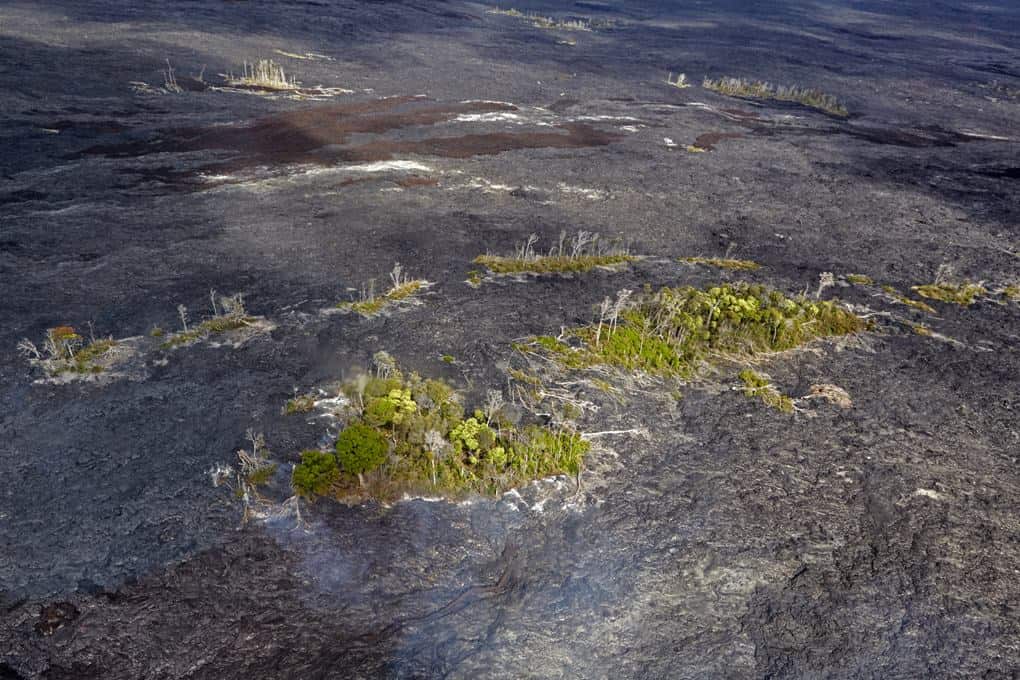
Rain forests and the unique wetland ecosystems or peat soils (swampy areas where partially decomposed forest matter like trees and leaves accumulate) on which some of the forests grow, store vast amounts of carbon dioxide. By retaining the carbon dioxide they act as the world’s natural climate controllers.
Their role is vital to ensuring Earth’s temperature remains constant. This fine balance has been disrupted by (among other post-industrial causes) the slash and burn nature of the palm oil plantations – intentional fires are used to clear entire regions of forest which can burn for literally months on end.
In some cases, these fires become uncontrollable and cause a significant amount of death and damage to the environment, animals and people.
Excess water is also drained from the swampy peat floors which causes the peat to completely decompose releasing devastating amounts of carbon dioxide into the atmosphere.
To put this into perspective, the Union of Concerned Scientists estimate that the peat based carbon alone is equivalent to approximately nine years of the entire world’s fossil fuel use!
Read more on palm oil deforestation and its impact here, here and here.
PEOPLE AFFECTED BY PALM OIL PRODUCTION
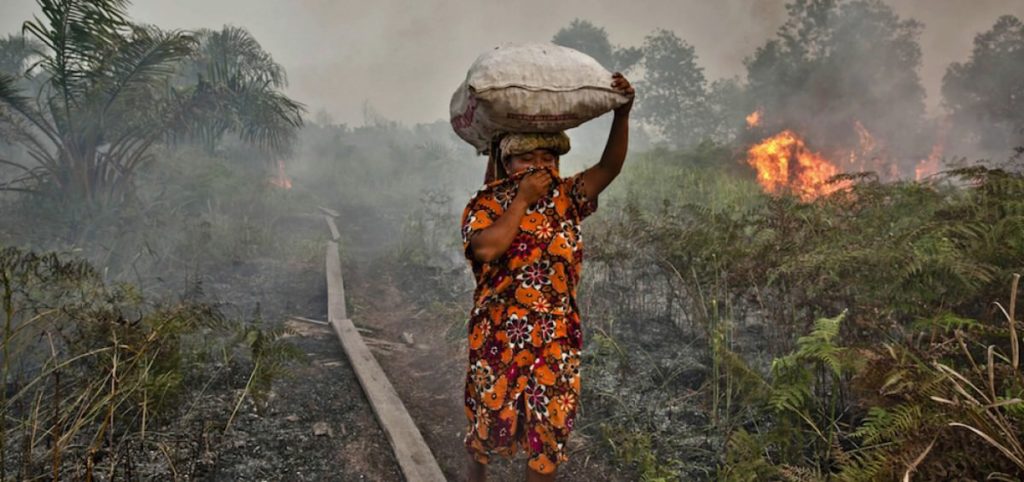
Many indigenous populations are suffering as a result of large-scale land acquisitions, also known as land grabs. These land grabs are often orchestrated by corporates and national governments.
Many indigenous people who had tenure on land suitable for palm oil are forcibly removed to make way for short term financial gain. Ironically, the destruction of the forests, force indigenous people to turn to the palm oil industryand work as plantation labourers in order to survive.
There are also major human rights violations taking place as a result of the introduction of the palm oil industry. Child labour in deplorable conditions is rife because it costs next to nothing.
GOING FOR PALM OIL FREE PRODUCTS
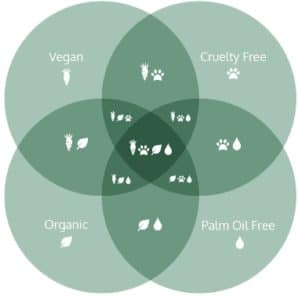
Many argue we should continue to use palm oil because:
1. so much more efficient than any other crop seed oil and
2. that it’s a relatively healthy additive, containing a good source of anti-oxidants
We believe that weighing up the competing factors, health or efficiency should not be at the forefront of our priorities.
The current concentration of demand on palm oil needs to be diluted. We also believe that it is not always necessary to have palm oil or similar ingredients in our products.
For example, peanut butter among many other products tastes so much better with just a few simple ingredients than it does with palm oil, sugar, salt, etc. etc. added.
Most consumers are completely unaware of this problem let alone the seriousness of it.
We believe most people who learn about this topic will make better, more informed and sustainable choices. Conscious consumerism is the first step in going palm oil free.
To this end we’ve included ‘Palm Oil Free’ as one of our cornerstone ‘sustainability circles’ (see our favorite Venn diagram below), meaning that we assess all brands that we review against this very important metric.
FINAL THOUGHTS ON GOING PALM OIL FREE
If you want to know more about whether truly sustainable palm oil exists read our deep dives on sustainable palm oil, palm oil consumption and why palm oil free may not be all that.
If you have any questions or comments or other suggestions for the Sustainable Jungle Community, leave a comment or get in touch – we’d love to hear from you
